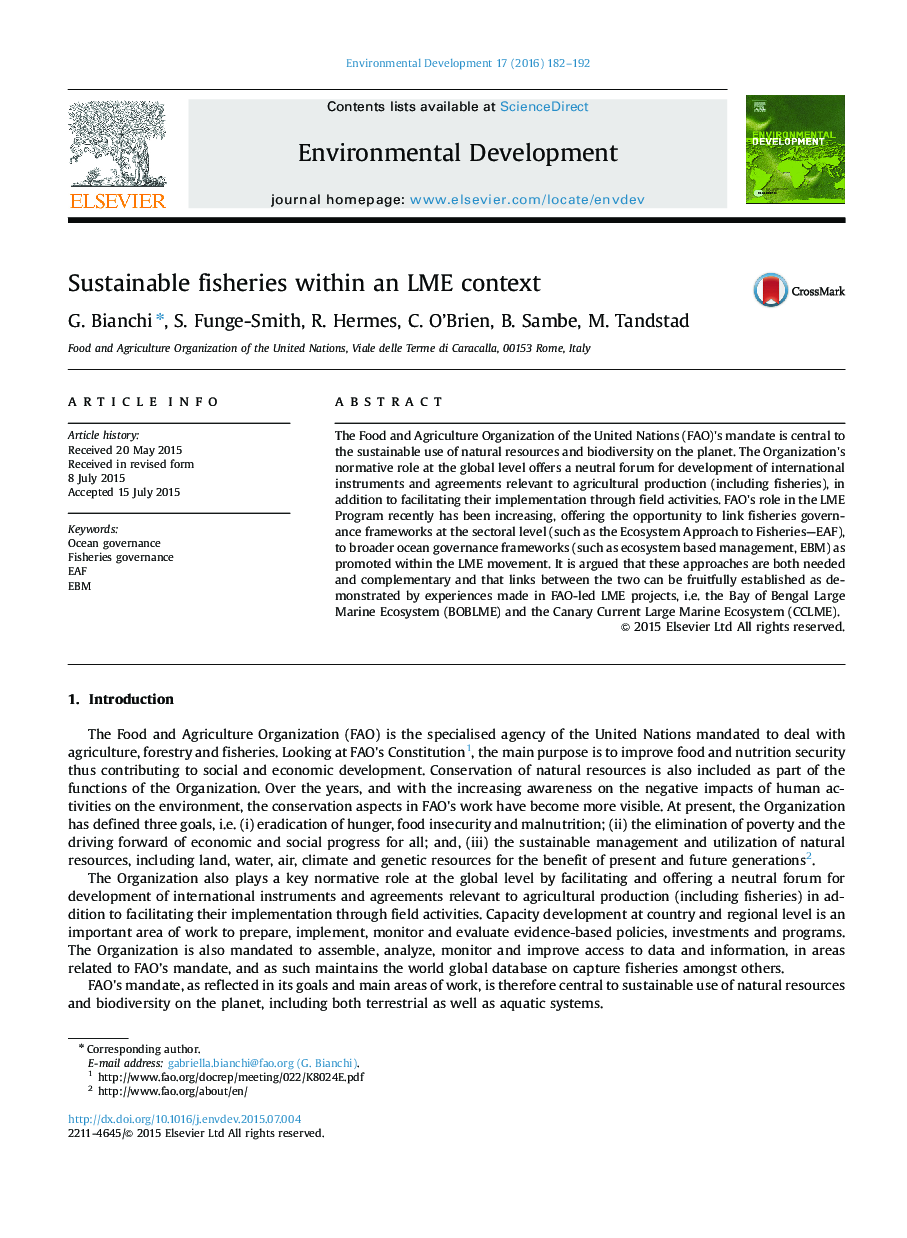| Article ID | Journal | Published Year | Pages | File Type |
|---|---|---|---|---|
| 4391384 | Environmental Development | 2016 | 11 Pages |
•FAO plays a normative role at the global level in fisheries.•Collaboration between FAO and LMEs could foster linking fisheries to broader ocean governance frameworks.•Establishing multi-sectoral governance is complex, but examples exist of good progress being made.
The Food and Agriculture Organization of the United Nations (FAO)'s mandate is central to the sustainable use of natural resources and biodiversity on the planet. The Organization's normative role at the global level offers a neutral forum for development of international instruments and agreements relevant to agricultural production (including fisheries), in addition to facilitating their implementation through field activities. FAO's role in the LME Program recently has been increasing, offering the opportunity to link fisheries governance frameworks at the sectoral level (such as the Ecosystem Approach to Fisheries—EAF), to broader ocean governance frameworks (such as ecosystem based management, EBM) as promoted within the LME movement. It is argued that these approaches are both needed and complementary and that links between the two can be fruitfully established as demonstrated by experiences made in FAO-led LME projects, i.e. the Bay of Bengal Large Marine Ecosystem (BOBLME) and the Canary Current Large Marine Ecosystem (CCLME).
